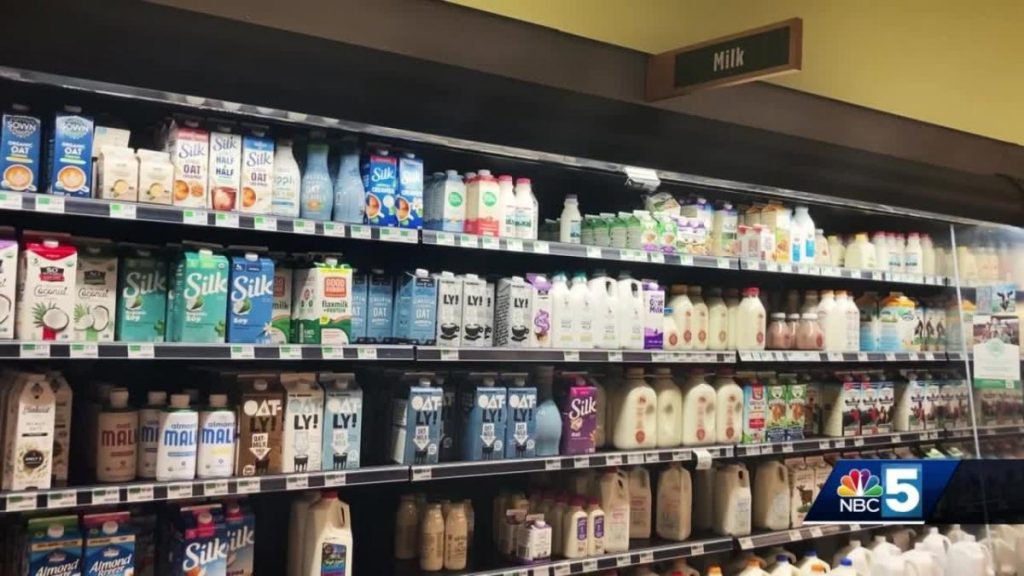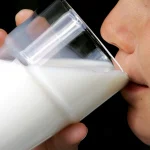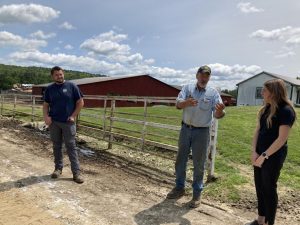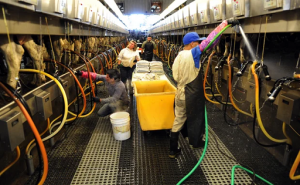
That’s why dairy farmers and advocates have been pushing for a name change for products such as almond, soy, and oat milk.
They want the Food and Drug Administration to adjust the labeling of calling plant-based beverages “milk.”
“They so far in the United States they’ve been able to list the word ‘Milk’ or ‘Cheese’ on packaging when they’re not meeting the standard of identity for those products,” E.B. Flory, Vermont Dairy Section Chief, said. “They also don’t meet the nutritional standards that milk meets in those other products.”
This is something Sen. Peter Welch has advocated to reverse for years.
He’s currently trying to make that happen now with the proposed Dairy Pride Act.
“It’s really important to our farmers that are struggling,” Welch said. “They’re making a good product. Let’s make sure that other products that aren’t milk can’t use that term.”
Not everyone is opposed to it, however.
In a statement to NBC5 from Plant Based Foods Association Vice President of Policy and Food Systems Nicole Negowetti, she said:
“The evidence is clear, there is no confusion around the labeling of plant-based milks. We applaud the FDA’s acknowledgement of this fact in their proposed draft guidance, which is in alignment with research PBFA has conducted over the years. It is also significant that the FDA recognized that consumers understand that plant-based milk alternatives are distinct products and choose to purchase plant-based milk alternatives because they are not cow’s milk. Plant-based milks provide variety and choice to consumers, many of whom do not consume dairy. Consumers are increasingly purchasing plant-based milk alternatives because of allergies, cultural relevance, intolerances to milk, sustainability, or lifestyle choices, and policy should support the will of the consumer.”
Plant Based Foods Association also was quoted in a 2019 article to Food Dive, that restricting milk labeling would be a “First Amendment violation” and ultimately be found “unconstitutional.”
However, in many dairy farmers’ eyes, the terminology has been misleading.
Amy Ransom, from Strafford Organic Creamery, said there are financial ramifications because of the way these products are currently marketed.
She finds it upsetting to continue to see more plant-based alternatives hit the grocery shelves because of how much work goes into producing organic milk.
“It’s frustrating because it’s a lot more work to make milk than squish up some plants,” Ransom said. “You raise a cow for two years, caring and feeding her, before she makes even a drop before you can sell.”
Flory said there are complaints from other states as well.
“It’s built over time from being an issue from just a few states,” Flory said. “It’s grown over the past few years considerably, where numerous states are reaching out.”
Flory would like the FDA to look at the rules in place north of the border and apply the same thing in the United States.
“Across the border in Canada, these same companies aren’t allowed to sell their products with milk labeled on it,” Flory said. “You’ll see instead of ‘almond milk’ that you have in the U.S. right across the border, it’s ‘almond beverage.'”

























